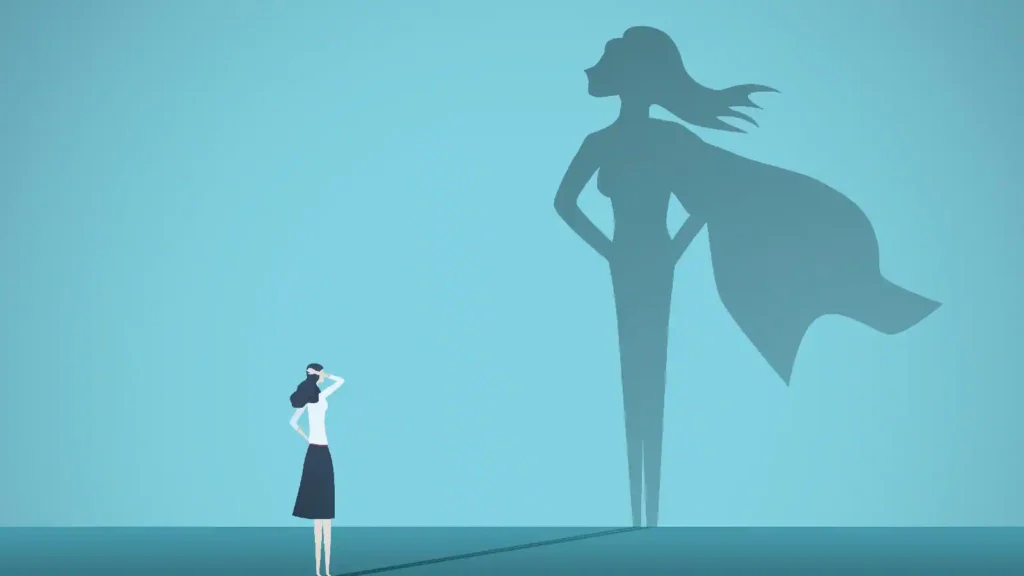PsyBlog posted a roundup of research related to conformity.
It’s a topic that means a lot to me.
Conformity has never really been my thing. In fact, it could be argued that much of my success has come from my desire to be different.
The research cited in the article about social approval was especially interesting.
The authors wrote:
People use conformity to ingratiate themselves with others. Conforming also makes people feel better about themselves by bolstering self-confidence. Some people have a greater need for liking from others, so they are more likely to conform.
But have you noticed that non-conformers are less likely to care what other people think of them?
Nonconformity and self-confidence also go hand-in-hand.
As a non-conformist, I find this supremely interesting.
Confidence — in my almost never-humble opinion — is one of the most important qualities a person can possess. Students who lack self-confidence have a far more difficult time learning because their willingness to take risks, make mistakes, and experiment with new ideas is significantly reduced when they don’t feel good about themselves and their work.
I spend more time than you could possibly imagine helping kids develop more self-confidence. I think it’s one of the most important things I do as a teacher.
Possibly the most important thing I do.
The same holds for adults. Confidence can be a game changer for a person, so I also spend an enormous amount of time trying to build the confidence of the adults with whom I work, and there are a lot of them:
Storytellers, writers, corporate executives, business owners, entrepreneurs, artists, colleagues, and many more. A lack of self-confidence often prevents people from challenging themselves, trying new things, taking advantage of new opportunities, and doing things unknown, difficult, or anxiety-producing.
Confidence is a secret sauce that allows a person to be what they’ve always wanted to be long before anyone else agrees.
It allows a person to move through life with greater ease and comfort, taking risks, making mistakes, and challenging norms without concern over what others might think.
It allows a person to step boldly forward, absent the preparation that so many others require before taking the same step.
It saves time, energy, and resources.
It’s truly a superpower.
Conformity, it would seem, increases confidence, presumably by reducing friction in a person’s life. When you conform to those around you, you’re likely to experience less conflict and be far more likely to receive positive feedback from the masses, thus boosting self-confidence.
“I feel good about myself because the people around me look and act like me and feel good about me.”
But I’m not sure if this version of self-confidence is real.
If a conformist were to suddenly find themself in a state of nonconformity, would their confidence remain intact? If they were to suddenly move to a new geographic location, where the styles, attitudes, and dispositions of the locals are unlike their own, would they still possess self-confidence, or would their confidence only return once they adapt to the new surroundings and conform to the new ideals?
I’m not sure.
Conformity might make you feel confident, but are you expressing your true self? Are you feeling good about yourself or only good about how you compare to those around you?
I’m also not sure.
However, the research also shows that the willingness and ability to avoid conformity can also greatly increase self-confidence, which sounds right to me. I’ve garnered a great deal of self-confidence through my willingness and ability to swim against the stream, stake out new ground, and avoid the tug of the masses.
I was a Yankees fan in a family, town, and state dominated by rabid, insane Red Sox fans.
I was the only boy in my school who played the flute.
I was suspended during my freshman year of high school for “inciting riot upon myself” after passing out “Seniors are Wimps” flyers and buttons at the doors of my high school.
I was the first kid in my Boy Scout troop to attempt to cook a campfire pizza.
For more than a year, I read books upside down to annoy my teachers.
I didn’t drink alcohol until I was nearly 20 years old. Never smoked or used an illegal drug. Never entered a strip club. While my friends were doing many of these things, I did not. I would be mocked and teased at times, and a few of my relationships suffered as a result, but I always felt great about myself and my decisions, regardless of the peer pressure leveraged against me.
If you know me today, you know little has changed in terms of my willingness to resist conformity to traditions, expectations, and the opinions of others.
I routinely annoy and even anger authority figures with my unorthodox opinions and methods.
My clothing often fails to conform to the expectations of the moment.
I push back on conventional wisdom whenever I can.
I try to bend or break rules and traditions when I deem them counterproductive or annoying.
“Only you, Matt…” are three words I hear a lot these days—twice last week.
Nonconformity remains the fount of my self-confidence. Or perhaps the indication of it. Or both.
But here’s perhaps the most important part:
But the source of self-confidence is irrelevant. Possessing self-confidence is the goal.
For some people, knowing that they fit in appears to grow self-confidence.
For others like me, knowing that I don’t need (or even want) to do the same.
This fascinates me because my clients constantly ask me to teach them self-confidence. Industry titans — people who you would think are as self-confident as anyone on the planet — have routinely asked me to help them find self-confidence:
Develop a course.
Write a book.
Teach a workshop.
Coach me on becoming more self-confident.
Recognizing my self-confidence — through my willingness to say the hard thing, perform onstage without any nervousness, engage in storytelling improv in front of hundreds of paying customers, and always look to do the next scary thing — dozens of business people have repeatedly asked me for lessons in self-confidence.
Up until recently, I told them confidence can’t be taught.
I’m starting to think it can. Over the course of my career, I’ve helped many students become more confident.
So why not adults, too?
If you have thoughts, resources, or ideas on the subject, send them my way.
It’s why I’m reading, thinking, and writing about self-confidence. I hope to gather enough strategies and techniques to help others move through this world, feeling better about themselves and caring a lot less about others’ thoughts and opinions.
When you can ignore the opinions of others, follow your own internal compass, find balance through perspective, and enjoy the self-assurance arising from an appreciation of your own abilities, you can truly possess a superpower.









